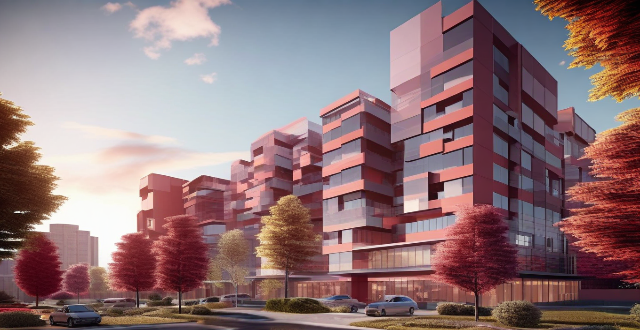Insulation is crucial for energy-efficient buildings, reducing heat loss and gain, improving comfort and indoor air quality, lowering energy consumption and costs, enhancing building durability and longevity, and meeting energy efficiency standards.

The Role of Insulation in Energy-Efficient Buildings
Insulation plays a crucial role in energy-efficient buildings. It helps to reduce heat loss and gain, which in turn reduces the amount of energy required to maintain a comfortable indoor temperature. Here are some key points on the role of insulation in energy-efficient buildings:
1. Reducing Heat Loss and Gain
Insulation works by creating a barrier between the inside and outside of a building, reducing the flow of heat. This means that during winter months, insulation helps to keep the warmth inside the building, while during summer months, it helps to keep the heat out. By reducing heat loss and gain, insulation helps to maintain a consistent indoor temperature, which can significantly reduce the amount of energy needed for heating and cooling.
2. Improving Comfort and Indoor Air Quality
By maintaining a consistent indoor temperature, insulation also improves comfort and indoor air quality. When a building is well-insulated, it reduces the need for frequent adjustments to the thermostat, which can help to prevent drafts and cold spots. This can lead to improved comfort for occupants and better indoor air quality, as there is less need for ventilation to remove excess moisture or pollutants.
3. Reducing Energy Consumption and Costs
Insulation can help to reduce energy consumption and costs associated with heating and cooling a building. By reducing heat loss and gain, insulation allows HVAC systems to operate more efficiently, which can lead to lower energy bills for building owners and occupants. This can also have a positive impact on the environment, as reduced energy consumption leads to lower greenhouse gas emissions.
4. Enhancing Durability and Longevity of Buildings
Insulation can also enhance the durability and longevity of buildings. By reducing the amount of moisture that enters a building, insulation can help to prevent mold growth and other moisture-related issues that can damage building materials over time. Additionally, insulation can help to protect buildings from extreme temperatures and weather conditions, which can extend their lifespan and reduce maintenance costs.
5. Meeting Energy Efficiency Standards and Regulations
Many countries and regions have implemented energy efficiency standards and regulations for buildings, including requirements for insulation. By incorporating insulation into the design and construction of buildings, architects and builders can ensure compliance with these standards and regulations, which can help to improve the overall energy efficiency of the building stock.
In conclusion, insulation plays a vital role in energy-efficient buildings by reducing heat loss and gain, improving comfort and indoor air quality, reducing energy consumption and costs, enhancing durability and longevity of buildings, and meeting energy efficiency standards and regulations. As such, it is an essential component of sustainable building design and construction practices.